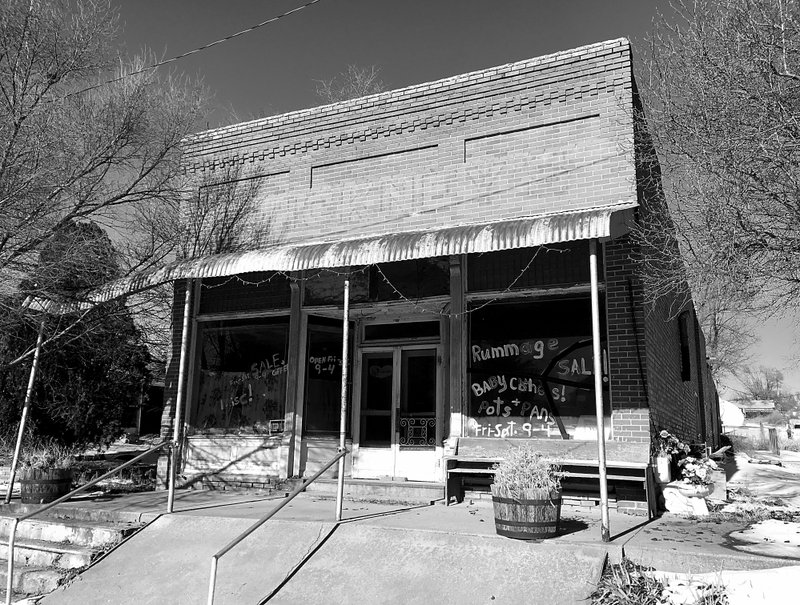While northwest Arkansas continues to grow and expand, not all parts of the country are experiencing such growth. A recent trip back to northwestern Kansas made that clear as we saw businesses and stores closing due to declining population and the inability to compete with large retailers offering online sales and free or low-cost shipping.
The population has been declining in many rural areas as farming operations grow larger and larger; and, due to equipment and production costs, farms need to grow larger to make them profitable.
Unlike northwest Arkansas with its poultry farms, cattle ranching and raising wheat, corn or milo in western Kansas require large acreages for pastureland and to justify the costs of machinery, fertilizers and other applications. And so, farms grow to thousands of acres rather than a quarter or half section and the rural population declines.
And with the declining rural populations comes also a decline in small-town businesses, and many storefronts which once displayed clothing and various goods are empty. In some cases, other resources such as oil or salt caused towns to boom, but as the industries dried up, so did the towns.
And how can local businesses compete with online sales? It makes sense -- why pay higher prices locally or drive 70 to 100 miles to the nearest supercenter when items can be purchased at competitive prices online and arrive at one's farm in two or three days?
Not only are local businesses drying up in some areas, but good-paying jobs are also harder to find there. Those working in a field unrelated to agriculture often have to move elsewhere to find work.
The end result is the growth of larger cities which have industry and job opportunities and the decline of small towns and cities which are or were dependent upon farming and farm-related businesses.
And, for some towns, it marks the end and leaves only the empty shells of once-booming and thriving businesses. Those wind-torn and dilapidated buildings stand silently as a reminder of what once was but will be no more.
Randy Moll is the managing editor of the Westside Eagle Observer. He may be contacted by email at [email protected]. Opinions expressed are those of the author.
Editorial on 01/09/2019
